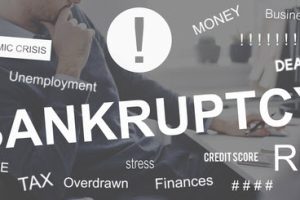The Different Types of Bankruptcy in Illinois

Most Illini live from paycheck to paycheck. In fact, almost half of American families cannot pay cash for a $400 emergency expense. So, most people are not able to weather the financial storms of life, such as job loss, divorce, and business downturns. These things can strike without warning at any time.
At times like these, bankruptcy is usually a good option. The Automatic Stay prevents adverse actions like wage garnishment, foreclosure, and repossession. As the name implies, the Automatic Stay is, well, automatic. Debtors do not need to prove negligence or hardship or anything else.
Both Chapter 7 and Chapter 13 bankruptcy involve the automatic stay. But after that, these types of consumer bankruptcy are quite different.
Chapter 7 Bankruptcy
Many people struggle with credit card debt, medical bills, and other unsecured debt. Credit card interest is overwhelming, and debt collectors often take over unpaid medical accounts after only a couple of months.
If your family needs to get out from under unsecured debt, Chapter 7 may be a good option. About six weeks after debtors file their voluntary petitions, there is a meeting with the trustee (person who oversees the bankruptcy for the judge). The trustee will want to see some financial and identifying documents, like recent tax returns and a Social Security card. Assuming there are no red flags, the trustee will recommend discharge.
About six months after the trustees meeting, the judge typically discharges unsecured debts. Debtors get the fresh start which the Bankruptcy Code guarantees.
There are some qualifications to meet. Chapter 7 debtors must have incomes lower than the average income for that family size in that state. These individuals must also complete some brief credit and debt counselling classes.
Chapter 13 Bankruptcy
Other families fall behind on secured debt payments, like home mortgage loans and car loans. After only two or three missed payments, the bank usually begins foreclosure or repossession proceedings. Such actions not only deprive your family of property. Much like unsecured debt collection referrals, adverse actions like repossession and foreclosure wreck credit scores.
Chapter 13 will lower your credit score as well, but it’s usually not as bad as adverse action. Foreclosure and repossession indicate that the debtor gave up, but if the debtor filed Chapter 13, the debtor at least took some action.
At a Chapter 13 trustees meeting, the trustee does a lot more than review paperwork, The trustee also puts the debtor on an allowance for either three or five years. After paying bills, all leftover money goes to pay off unsecured debt arrearage. As long as the income-based repayment plan takes care of all arrearage before the end of the repayment period, most debtors must accept these payments. They cannot demand more money or faster repayment.
Since Chapter 13 lasts much longer than Chapter 7, Chapter 13 debtors have some additional options. For example, it may be possible to reduce a home mortgage loan amount, especially if the property’s value has decreased. And, if you are upside-down on a car loan, it may be possible to get out of that loan and save thousands of dollars.
Contact Experienced Lawyers
Illinois families who are experiencing financial distress have some legal options. For a free consultation with an experienced Chicago bankruptcy attorney, contact the Bentz Holguin Law Firm, LLC. We routinely handle matters in Illinois and Indiana.
Resource:
federalreserve.gov/publications/files/2017-report-economic-well-being-us-households-201805.pdf


